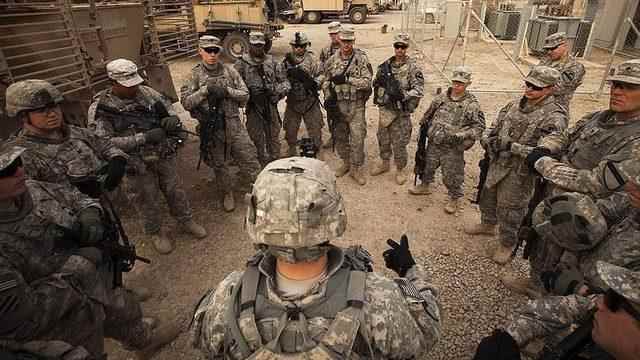The Washington Post newspaper, within the framework of the Right to Information, has accessed the 2,000-page investigation report on the withdrawal and evacuation process of the US Land Forces from Afghanistan, with a court decision.
NEVER ANNOUNCED SIGNIFICANT EVENTS
The report drew attention to several previously unannounced events, as well as the assessments of senior military officials regarding the withdrawal.
Making evaluations to the investigation team, US commanders noted that US soldiers killed 2 Taliban fighters in a chaos that occurred in the first days of the evacuations at Kabul Hamid Karzai International Airport.
In the report, which alleged that Taliban members were shot for intimidating US soldiers and civilians, it was stated that in another incident, 1 person from the Afghan special forces that supported the US in the evacuations was killed by American soldiers, and 6 Afghan soldiers were injured.
In the report, which pointed out that 4 Afghan civilians died in the stampede in the first four days of the withdrawal, it was noted that a sound bomb was thrown to disperse the crowd at the door, and as a result, 1 civilian died.
In addition, the report states that on the day that the Taliban captured Kabul, US soldiers were fired upon, and it was stated that 2 Taliban members were killed in response to the US soldiers’ response there.
US Rear Admiral Peter Vasley, who coordinated the evacuations during the withdrawal, told the investigative team that he expected the government of Afghan President Ashraf Ghani to collapse on August 14, while the US carried out 10 airstrikes on the Taliban that day near Kabul and that around 100 Taliban members were killed. .
CLAUSES POLICY MAKERS FOR NOT UNDERSTANDING WHAT HAPPENED ON THE FIELD
Explaining that the rapid takeover of the country by the Taliban limited the capabilities of the US forces in Kabul, Vasley accused policy makers of not understanding what was happening on the ground.
Vasley stated that even at the beginning of the turmoil in the country, the US Charge d’Affaires at that time, Ross Wilson, focused on maintaining the diplomatic presence in Afghanistan.
Vasley argued that Wilson initially asked for two weeks for the evacuations, but then pressed for an expedited evacuation three days before the fall of Kabul.
In the report, an unnamed official, who confirmed Vasley’s words, said: “Rear Admiral Vasley was trying to convince the ambassador about the level of threat in the country. Almost every day, about 10 district centers were falling into the hands of the Taliban. The embassy should have taken a position for evacuation, but the ambassador did not understand the situation.” said.
THEY DID NOT TELL ANYONE OTHER THAN THE ENGLISH
Brigadier General Farrell J. Sullivan, who has been following the activities of the marines sent to Afghanistan to support the evacuation and withdrawal process, stated that he wanted to stock up on essential supplies for the 5,000 people evacuated at the airport in mid-July, but this plan failed because he had no authority to tell anyone but the British about the evacuation. .
Stating that the number of Afghan forces that supported the US army during the withdrawal and will be taken out of the country was 6 thousand, Sullivan said that this number later turned out to be 38 thousand 800.
The US general also stated that thousands of evacuees sent to them from many places, from the White House, State Department and other US institutions to the Vatican, increased their workload to the next level.
Other military officials also noted to the investigative team that they did not tell the officials of countries other than Britain about their plans for evacuation and withdrawal, so as not to cause alarm that would prompt the immediate withdrawal of other countries.
DEFENSE FROM THE WHITE HOME
Spokesperson of the White House, Psaki, made evaluations about the report in the Washington Post newspaper yesterday, which claimed that there were disagreements between the soldiers and the White House during the withdrawal process from Afghanistan, in his daily press briefing.
Responding to the criticism that the White House did not pay attention to the warnings of the American commanders serving in the region, Psaki said that they made many exit plans at that time, and that the soldiers as well as civilians from the National Security Council (NSC) took part in these plans.
Expressing that no one in the NSC expected the Afghan security forces to disperse so quickly, Psaki argued that despite this, they had a successful evacuation from Afghanistan and that there was the necessary coordination between the relevant institutions in this process.
On the other hand, Psaki stated that he did not find it correct to evaluate the withdrawal process from Afghanistan and the situation in Ukraine as similar cases and that they were in close and coordination with the Pentagon. (AA)
